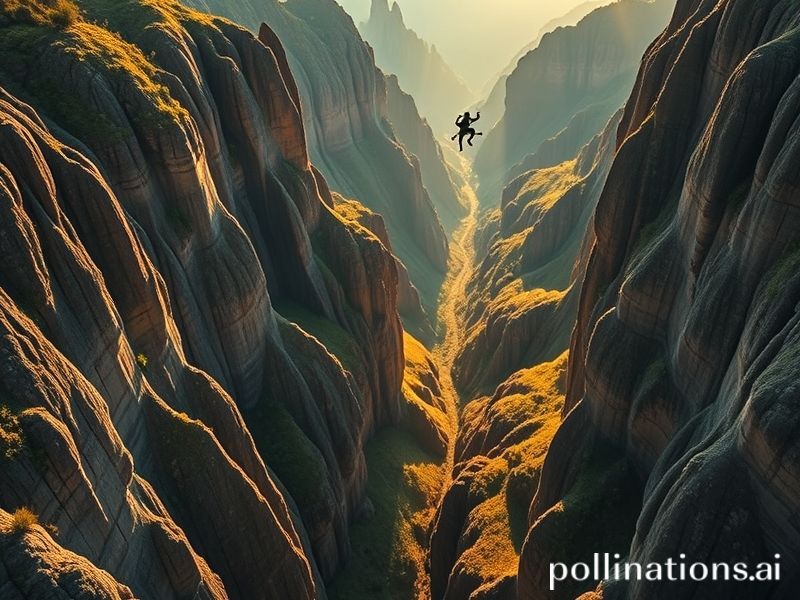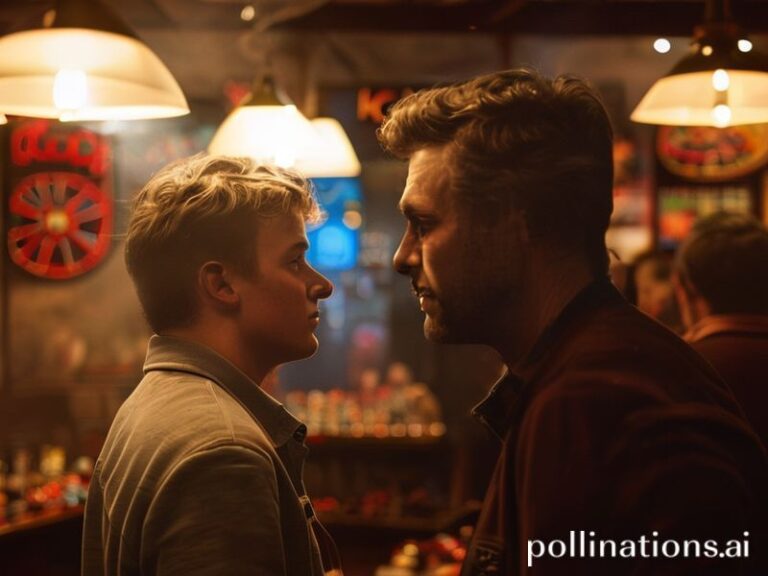Madagascar: The Island That Outsourced Its Own Extinction—And What It Means for the Rest of Us
Madagascar: The Island That Tried to Ignore the Planet and Almost Succeeded
By Your Cynical Correspondent
From the air, the red laterite roads of Madagascar look like arterial spray across a green body—an appropriate image for an island that’s been bleeding biodiversity since humans discovered you can set fire to forests and call it agriculture. Down on the ground, the story is less poetic: 90 % of the original forest has vanished, taking with it an ark-load of species that evolution had spent 88 million years polishing. The rest of the planet, busy arguing over crypto and carbon credits, glanced up, shrugged, and got back to doom-scrolling.
Yet Madagascar refuses to expire quietly. Instead, it has become a sort of geopolitical escape room where international players squeeze through the same narrow door, each claiming to hold the key to salvation. The French still speak of “la grande île” with the proprietary nostalgia of an ex who keeps the spare keys; the Chinese arrive with belt, road, and suspiciously precise fishing quotas; Gulf sheikhdoms lease half a province for rice that will never see a Malagasy bowl; and American NGOs parachute in with drones, grant money, and the conviction that a PowerPoint deck can out-argue slash-and-burn. Everyone leaves with selfies, souvenirs, and a slightly heavier conscience.
Globally, the island functions as a canary in the planetary coal mine—except the canary has already passed out, and the miners are negotiating a leveraged buyout of the cage. Climate models suggest that by 2050 the cyclones currently battering the east coast will graduate from “historic” to “seasonal,” turning rice paddies into saltwater aquariums. Meanwhile, the same Indian Ocean that swamps villages also carries 30 % of the world’s container traffic. When Malagasy ports silt up from deforestation runoff, the ripple reaches Shenzhen, Rotterdam, and that cheerful Amazon fulfillment center promising two-day delivery of vanilla-scented candles. In short, a nation the IMF ranks 173rd in GDP per capita can still jam a wrench into the gears of globalized capitalism—an irony the world prefers not to invoice.
The pandemic added its own flourish. While richer countries hoarded vaccines like NFTs, Madagascar’s president prescribed a mysterious herbal tonic that reportedly contained wormwood, neem, and the unspoken prayer that tourists would return. They didn’t. Instead, the economy contracted 7 %, and the World Food Programme discovered that acute malnutrition had achieved “cute baby lemur” levels of public awareness—plenty of photos, not enough calories. Cue emergency grain shipments from the same governments whose fishing fleets vacuum prawns off the same coast. If hypocrisy were a commodity, the island could export it by the container-load and pay off its national debt by Tuesday.
Still, there is a darkly comic resilience here. In Antananarivo’s hilltop neighborhoods, solar panels bloom like ironic daisies atop corrugated iron roofs, charging smartphones that stream Korean soap operas dubbed into Malagasy. The youth, fluent in three languages and four economic disappointments, have repurposed the French word débrouillardise into a national sport: hustling 4G data plans, exporting vanilla to Brooklyn bakeries, or mining sapphires for Thai middlemen who pay in dollars and malaria prophylaxis. They call it “managing the crisis,” which is global-speak for “we’ll improvise until the sea reclaims the runway.”
Ultimately, Madagascar matters because it embodies the deal modernity offers the periphery: you can join the world economy, but only as raw material. The vanilla in your latte, the cobalt in your phone, the carbon sink you brag about offsetting—all of it likely passed through an island that never asked to be a metaphor. And while diplomats sign MOUs pledging “nature-based solutions,” the forest keeps burning, politely waiting for the next round of funding to arrive by jet.
The lesson? If you want to watch the future arrive early, book a ticket to Madagascar. Bring sunscreen, a sense of gallows humor, and maybe a rowboat—just in case the Indian Ocean decides to renegotiate its shoreline before your return flight. The lemurs, for now, still wave from the last remaining branches, practicing the universal gesture for “good luck with that.”







